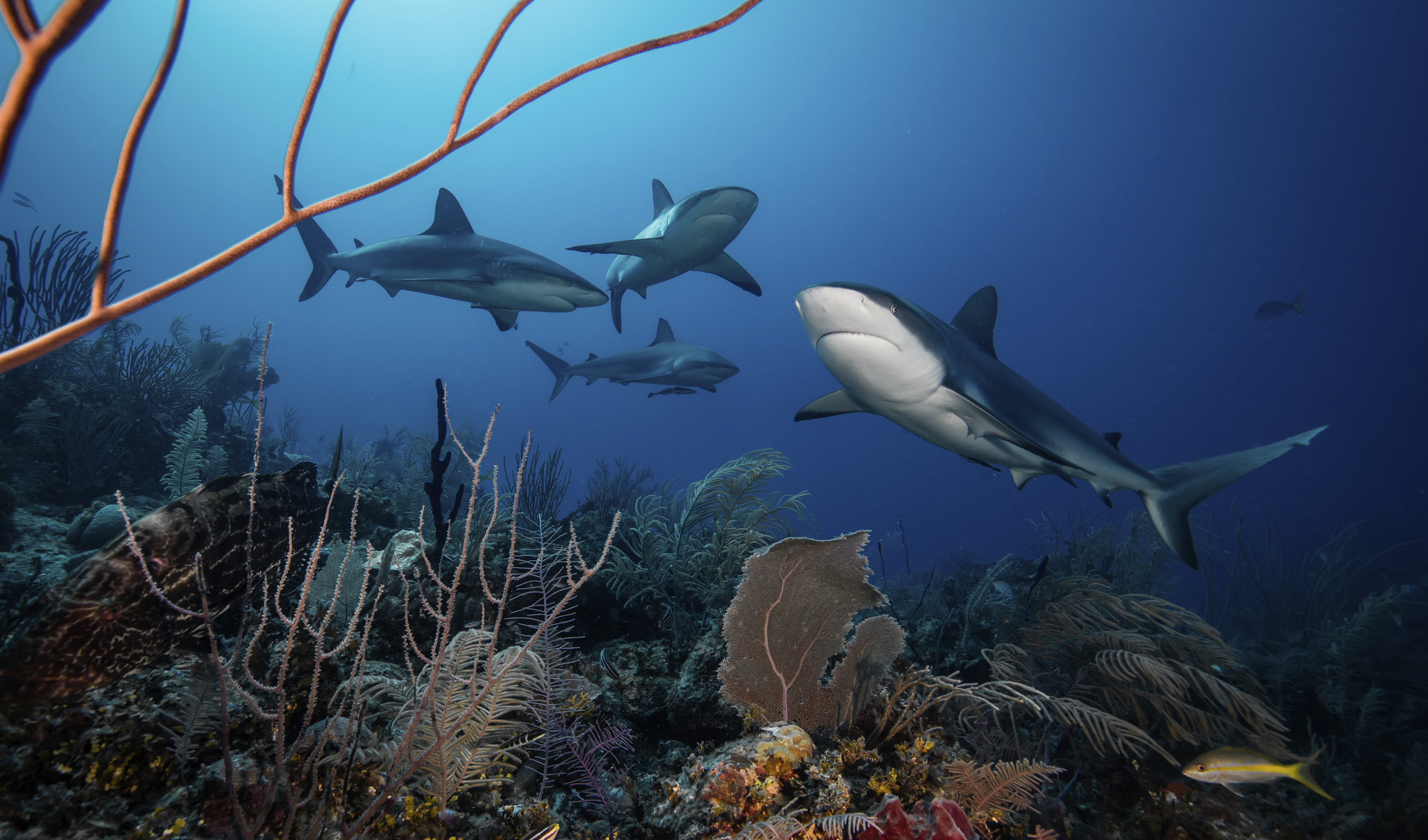The international policy agreement that meant regulation for over 90% of the global fin trade

Caribbean reef sharks © Shark Conservation Fund / Philip Hamilton photography
05.02.2024
ERF have recently partnered with Oceans 5, the world’s leading marine funders’ collaborative. Oceans 5 aligns major international donors on ocean conservation priorities and activities, encouraging collaborative grants that work towards common policy objectives.
A 2021 international study found that 37% of all sharks and rays are threatened with extinction, making them the second most endangered group of vertebrates in the world. Unsustainable fishing driven by increasing demand for shark products (especially fins) and poorly controlled trade have led to a 90% decline in some shark populations worldwide. Sharks and rays are critically important to maintaining healthy marine ecosystems; they prevent overgrazing of seagrass and kelp ecosystems; transport nutrients from offshore to coastal reefs; and help sequester carbon. Healthy shark and ray populations help mitigate the worst effects of climate change.
Recent years have seen Oceans 5 supporting The Shark Conservation Fund (SCF), another philanthropic collaborative. Together with Oceans 5, SCF supported a global coalition of NGOs led by the Wildlife Conservation Society that campaigned to regulate the trade of endangered shark species, specifically the majority of the global fin trade.
This international campaign saw success when, in 2022, parties at the 183-nation Convention on International Trade in Endangered Species of Wild Fauna and Flora, (CITES), voted to limit or regulate the commercial trade in 54 shark species of the requiem shark family, including bull and blue sharks which are the most targeted for the fin trade. Six small hammerhead shark species were also listed for protection along with 37 types of guitarfish, which are shark-like rays. In order to trade a species regulated by CITES, a country must demonstrate that the trade will not be detrimental to the species in the wild.
This global effort included outreach and training in developing countries, the creation of compelling materials, and a targeted advocacy effort to secure the support and buy-in from the European Union. The campaign culminated in CITES tripling the number of shark species under its authority, so now more than 90% of the global fin trade is regulated. While this was a significant victory, the authority to regulate is only the first step. SCF – with continued support from Oceans 5 – is now supporting implementation projects around the world that have already secured improved shark conservation measures in Senegal, Ecuador, and Madagascar.